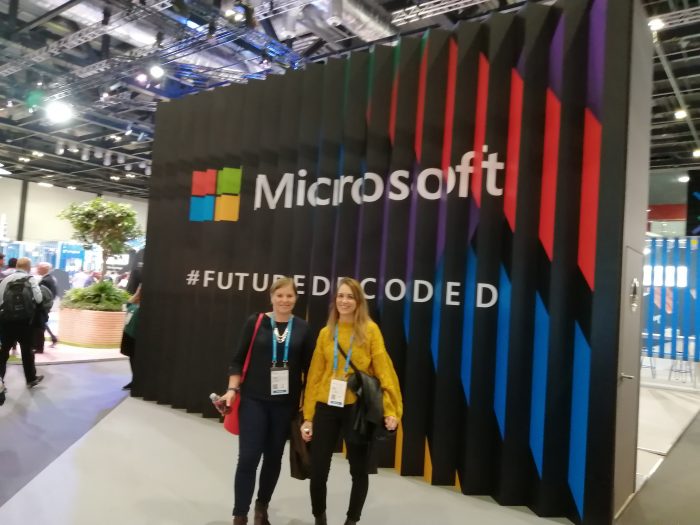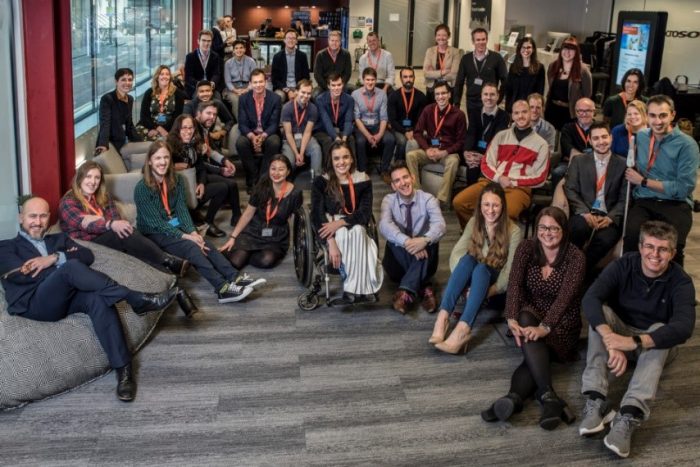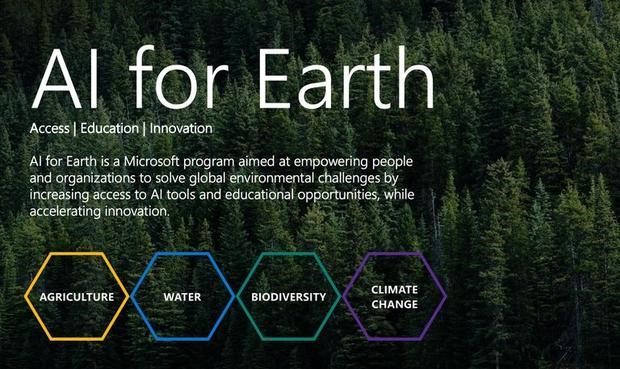
I can’t believe it’s been a month since Future Decoded, Microsoft’s UK event showcasing the latest in technology and innovation.
With over 12,000 business leaders, executives and experts in attendance, it was my first time at the annual event held at ExCeL London.
Attending day one – about technology as an enabler, I was completely engrossed by one of the themes, AI for Good.
Watching keynote speakers Microsoft UK CEO Cindy Rose, Microsoft UK COO Clare Barclay, Chief Environmental Officer Dr Lucas Joppa and Executive Vice President of Business Development, Peggy Johnson. Dr Lucas Joppa struck a particular chord.
AI for Good
We’ve talked about it in previous blogs, however when it comes to the subject of AI, there tends to be a lot of negativity.
But when listening to Dr Joppa, when AI is put to use for the work of good, amazing things happen.
Discussing the AI for Good Cohort, AI for Earth and the current work Microsoft are doing at the moment around sustainability, I left the keynote feeling pretty positive and eager to learn more.

As an overview, the AI for Good programme is a $115 million commitment to empower organisations around the world to solve humanitarian issues, global sustainability and amplify cultural heritage. Creating four pillars to represent this within the programme, the AI for Good Cohort is an accelerator scheme led by Microsoft UK and Social Tech Trust to help develop start-ups looking to drive change in society.
From improving food chains, to helping the visually impaired and those with dyslexia, the aim is to use AI to help the world.
Included in this is AI for Earth.
Founded in 2017 by Dr Lucas Joppa, AI for Earth is working to advance Microsoft’s core commitment to sustainability, with Dr Joppa himself an accredited voice for sustainability in the tech industry committed to, “using the power of advanced technology to help transform how society monitors, models, and ultimately manages Earth’s natural resources.”
AI for Earth
Looking at AI for Earth in more detail, the project uses AI to help the environment.
Empowering organisations to help solve the environmental challenges we face today, including climate change, Microsoft offer grants to businesses who want to make a difference and provide access to Microsoft Azure cloud and AI computing tools.

This is because “Microsoft thinks that making AI more accessible could enable breakthroughs in sustainability that help to protect the Earth.”
Addressing four key areas: agriculture, water, biodiversity and climate change, Microsoft says:
“By 2050, farmers must produce more food on less arable land and with less environmental impact to feed the world’s increasing population. AI can help people monitor the health of farms in real time…In the next two decades, demand for fresh water is predicted to dramatically outpace supply. AI can help people model Earth’s water supply to help us conserve and protect fresh water.”
Providing education, APIs, applications, grants and more, Dr Joppa made a comment that will stay with me. He said: “if you care about people you should care about the Earth”.
Ethical responsibility was spoken about a lot throughout the day, but in terms of AI for good, the Earth and all our futures, it really is each and every one of our collective responsibilities to ensure we take care of our planet.
With all the technology we have at our disposable, let’s use it for the greater good.
OceanMind
With this message ringing in my ears, Dr Joppa welcomed Nick Wise, CEO of OceanMind to the stage. (“A not-for-profit organisation that helps empower enforcement and compliance to protect the world’s fisheries – supporting government authorities and seafood buyers.”)
Talking about how OceanMind partner with Microsoft and use AI to help protect the world’s oceans, he outlined three areas the organisation focus on:
- Making fishing sustainable, and protecting biodiversity; to build ocean resilience and to feed a growing population
- Ending modern slavery on the ocean, and protecting lives and livelihoods
- Preventing illegal salvage of protected war graves and shipwreck sites.
An incredible message and insight into what just one organisation can do, if we all used AI for good, how much more could we achieve and in what ways could we help the planet?
With Microsoft themselves operating as carbon neutral since 2012 and continuing to reduce emissions, they’re also committed to reducing operational carbon emissions by 75 percent. Believing “climate change is an urgent problem that demands a global response from all industries” what will your organisation be doing to care for people and the Earth?
Moving to the cloud is another way your organisation support this reduction, as Azure hosting is better for the environment than on premise solutions.
To find out more about Microsoft Dynamics 365 Business Central and how you can use AI in your business, please get in touch with one of our experienced team.
